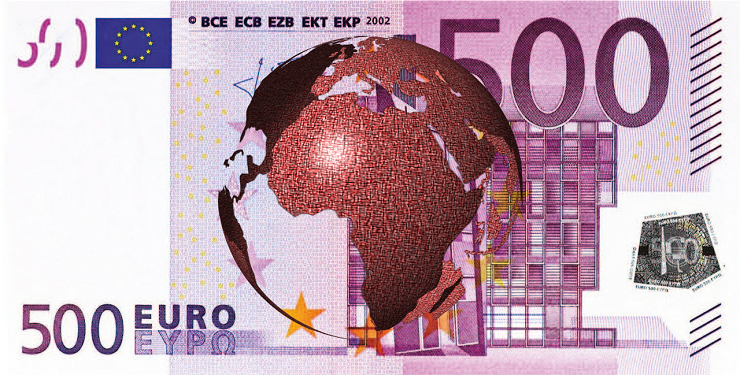What to know about Investing Internationally: Our Simple Guide
International investing is a smart way to diversify your portfolio and protect your assets against regional volatility. However, there tends to be a steep learning curve when deciding where to put your money and why.
Use this guide to learn why you should be investing internationally, how you should do it, and some best practices from the experts.
What is International Investing and Why Should you do it?
International Investments Increase Diversification
Investment educator Paul Merriman at MarketWatch explains that diversity is a key part of investing, and ignoring international markets would be like ignoring a major industry or failing to consider a company’s size in the rest of your portfolio.
“Investors have better long-term outcomes when they diversify widely among asset classes,” he writes. “...Many academics also have concluded that it's a bad idea to have more than half of your equities in stocks from any one country.”
In fact, most investors have a “home bias” where they only want to invest in stocks and bonds in their home country. However, Jonathan Satovsky, founder of Satovsky Asset Management, was quoted in U.S. News on how there are just as many exciting companies globally as there are regionally.
“There are talented, smart, creative people around the world,” he said. “It’s just a question of whether their laws and regulations allow them to be as entrepreneurial as a Facebook or Google or Apple, and allow you, outside the region, to participate.”
Furthermore, international stock diversity leads to better-informed decisions with your regional portfolio. Jeff Opdyke, Editor at the Sovereign Investor, understands how the stock market of one country doesn’t paint a complete picture of global economic health: “In a globalised world — one in which your assets are intimately tied to what happens not just here at home but in Europe, Asia, Australia and even South America — your success comes from global diversification. A savvy investor must have assets at work in other markets at all times.”
Essentially, your national investments will be affected by global markets anyway, so why not test what other markets have to offer? Andrew Henderson at Nomad Capitalist takes this thought one step further, suggesting you yourself should "go where you're treated best", but for the moment we'll stick to your investments only.

Global Markets Are Closely Intertwined
One of the most important points when considering investing internationally is how the world reacts to problems together. Nathan Bomey and Matt Krantz at USA Today reported on the shockwaves felt in American stocks following the Brexit vote, which caused massive drops.
“The losses dropped both stock measures back into negative territory for 2016,” they wrote “…The drop erased roughly $800 billion in U.S. market value, as measured by the Wilshire 5000 index.” Americans started buying gold, which has long been perceived as one of the safest bets for investors, in response.
Along with the Brexit, cultural differences continue to make European stocks a risky choice as nations are pulled apart by economic differences of finance, labor, and immigration. Richard Barley at the Wall Street Journal offers a delicate criticism for Europe’s politics in the past year as a cause for slow economic growth.
“Homegrown risks are plentiful,” Braley writes. “Europe’s handling of the migrant crisis has reminded investors of its unwieldy approach to decision-making … [and] Greece may yet return to haunt the headlines.” The migrant crisis isn’t going away in the next year or two, and could continue to add uncertainty to European markets as long as there is war in Syria.
All of this means your international markets aren’t siloed by regional politics. American involvement against ISIS in Syria affects the flow of migrants to Europe, which affects the stock markets of both regions. Because of their sizes, Asian and South American markets are also shaken, and the markets move in tandem.
Smart Investors Have a Long-Term Focus
Despite the current instability in the world, there will always be war, political upheaval, and economic downturn. International investors would be wise to have a long-term plan with their investments instead of hoping to cash in on another region’s misfortune.
Allison Schrager at Quartz says markets tend to overreact to problems, and will eventually stabilise from the June 2016 Brexit vote.
While many people are trying to invest in the pound as it sinks to the lowest level in years, Schrager cautions investors that this isn’t a one-time thing. “Brexit is not an isolated event that markets will forget next week.
“...What you bought could fall further in price, or it could rise and then collapse again before you manage to sell it.” While you might think the only way UK stocks could go is up, you’re actually entering a roller-coaster type market scenario.
However, economic instability doesn’t have to be a reason to avoid investing. According to Tim Maverick at Wall Street Daily, Europe’s economic growth has slowed to a crawl this year, earnings are stagnant, and distrust in the banks is leading to spiraling interest rates.
This can be good news for investors who aren’t in Europe who are looking to take advantage of the opening. “To me, the discounted rates of European stocks, when compared to the U.S. prices, and their higher yield make for an interesting and exciting time to invest in Europe,” he writes. This year’s weakness makes Europe much more approachable as an investment opportunity than previous years.
Essentially, there’s danger when investing in any corner of the world. The key is to have a long-term plan that can survive temporary downturns and a diverse portfolio that balances risk with reward.

Financial Advisors Can Fill Education Gaps
One of the bigger challenges of investing internationally is education. It’s hard to keep track of one country’s economic outlook, much less the entire world’s.
This is especially convoluted when each region uses different metrics to determine stability and success. The Marshall News Messenger recommends going through a financial advisor whose job it is to stay abreast of market fluctuations. “If you are going to invest internationally, it's probably a good idea to do so with the help of a financial professional — someone with the resources and experience to help you avoid potential pitfalls.”
The team at AllBusiness explains the pros and cons of hiring a professional to manage your international investments. Along with stock and market knowledge, they right, these professionals can create the right plans to achieve your investing goals.
“Learning how to plan for and save for major events is one of the reasons why people seek out financial advice. If, for example, you are ten years away from retiring and hoping to make the money in your retirement account last, you might want to set up a plan with a professional.”
The author does caution that you’re disclosing your entire financial situation to this person, and if you don’t feel comfortable you should walk away.
Another option for money management is working with robo-advisors that use a series of risk-factor analyses and algorithms to determine where your investments should go. Tara Siegel Bernard, personal finance expert, explained to Boston.com how these robots are programmed as fiduciaries and will always have the investor’s best interest in mind.
However, there are certain education factors that may sew their view of a portfolio. “A robo-adviser does not ask about money held outside of its service, for example, which can provide a distorted picture of a customer’s financial standing,” she said. “Others argue the robo-advisers try to wiggle out of too much responsibility in their customer agreements.”
If education is the biggest barrier to entering international markets, these options are a great place to start.

Consider Different Countries, Not Just Continents
When you consider investing, don’t limit yourself to regions such as the EU and Asia. It’s possible to get into the nitty-gritty and invest in specific countries that match your risk tolerance and goals.
Kenneth Rapoza at Forbes breaks out a top 10 list of countries to consider investing in this year. Asia and Europe are incredibly diverse, and you shouldn’t judge individual countries by their collective performance.
For proof of this, Portugal was named his top country to invest in. “With its banking issues from the summer of 2014 largely contained and fiscal policy improving, Portugal will lead the pack in any Eurozone recovery scenario,” Rapoza says. “In terms of fiscal policy, Portugal is mostly improving. The top corporate tax rate was reduced to 21% this year from 23%.”
Furthermore, countries that seem stable on the outside might have problems stewing in the next several years. Steven Goldberg, columnist at Kiplinger, explains that Japan — one of the most stable of all Asian countries — isn’t exempt from economic instability.
“Japan is borrowing at a frenetic pace to try to spur growth,” Goldberg says. “But it is up against a demographic wall. The population is aging—much faster even than Europe’s—partly because of a low birth rate but more importantly because of a longtime resistance to virtually any immigration.”
While many of these factors aren’t cause for immediate concern, it highlights signs of trouble in the coming years for future investments.
Finally, every country offers different levels of protection for investors. According to the National Bureau of Economic Research, one reason for this is differences in legal interpretation. “The common law system [of England] allows judges to apply general principles and legal precedents to alleged investor abuse ‘even when specific conduct has not been described or prohibited in the statutes,’” it writes. “Civil law [of France] requires judges to base their rulings on the exact letter of the law.”
This means England has some of the strongest protections of outside investors, while France has the weakest.
These actually stem from 17th Century problems of unfair taxation from the English crown and Napoleonic rule on the French side. This also shows that economic stability shouldn’t be the only choice investors evaluate when it’s time to buy or sell.
There Are Benefits to Investing Off the Beaten Path
You don’t have to stick to big countries such as Japan, France and America when you start investing. It might be better to skip these economies altogether and opt for a smaller one instead.
Liz Smith at SmartAsset recommends investing in smaller markets if you don’t have a large portfolio and are worried about competing with European and American behemoths.
“Investing abroad can also give you the chance to put your money into emerging markets in countries that aren’t as developed,” Smith says. “...Stocks in these markets are quite inexpensive and although they haven’t performed well in years, things could turn around in the future.”
Even if you have a large portfolio, it might be worth checking out Asian markets for a crash course in how they fluctuate before investing heavily in them.
If you’re unsure about volatile markets of specific countries, consider investing through a trust. These companies work to invest your money in multiple markets across Asia and companies within them.
“Given that Asia is not a homogenous region, diversification across industries and/or countries is a particularly important tool to help mitigate the negative impacts of stock market volatility,” Schroders says. This is a particularly smart idea when you’re just starting out in international investing, so you can start learning more about behavior and these regional companies.
Wait for the Optimal Currency Level to Sell
As InvestorGuide.com points out, investing internationally means juggling investments across companies, countries, and currencies. While you might be tempted to pull your income out of one country because of lower-performing companies, you could get dinged with the conversion rates.
“To invest internationally, you must exchange your [money] for the currency of the country in which you plan to invest — and when you sell, the money gets exchanged again,” the site says. “This adds another level of investment risk to your overall ROI.”
Even if you made a profit, you could be losing money due to poor exchange rates.
These are just a few best practices for getting your international investment portfolio started. Investing can ensure you have a long and happy retirement, or help you live off your earnings while you travel. It’s all about setting realistic goals, planning for the long term, and taking a little risk.
Images by: ©rawpixel/123RF Stock Photo, geralt, diema, steven_yu











